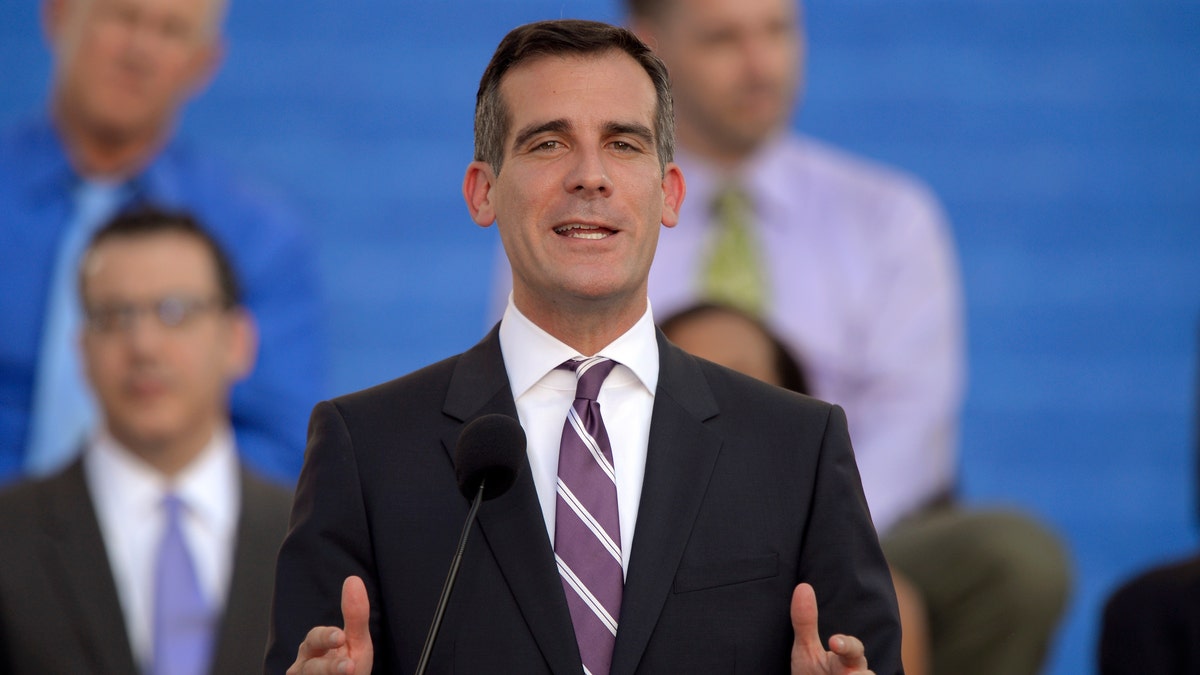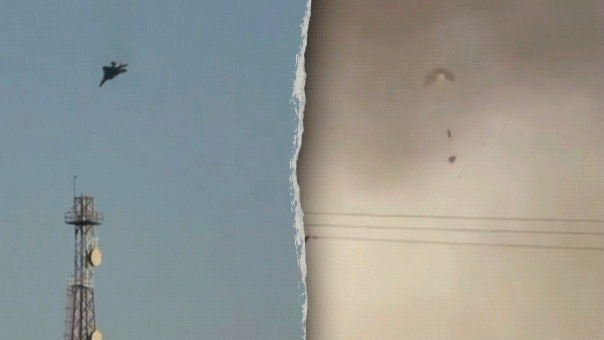
Eric Garcetti was elected mayor of Los Angeles in 2013.(AP Photo/Mark J. Terrill) (AP2013)
LOS ANGELES – Los Angeles Mayor Eric Garcetti will not seek the Democratic presidential nomination in 2020, slightly winnowing a field that is still likely to be large and unwieldy for a party desperate to oust President Donald Trump.
"I have decided not to throw my hat into the ring to run for president in 2020," the mayor said Tuesday at Los Angeles City Hall, ending months of speculation about his political future. His decision came days after he helped negotiate an end to a teachers strike in Los Angeles public schools.
The 47-year-old mayor sounded like a presidential candidate as recently as last week, using a national confab of his fellow mayors to blast Trump and a hyperpartisan Congress in a speech delivered blocks from the White House. National politicians, he said, divide the nation into "red and blue states" when the real divide, he argued, "is Washington and the rest of us."
After that address, he held court as the assembled national media peppered him with questions about whether he'd join his fellow Californian, Sen. Kamala Harris, in the 2020 Democratic presidential field.
While the presidential field is still likely to grow, Garcetti's exit could help Harris consolidate the state's considerable cache of donors. It also means she will not have a native competing for votes in the California primary, which is planned for early March 2020 alongside a gaggle of Southern states.
Garcetti raised his profile in 2018 by campaigning and raising money for Democratic candidates and state parties around the country. His $2.5 million-plus in party fundraising included $100,000 each for the state parties in each of the first four presidential nominating states of Iowa, New Hampshire, Nevada and South Carolina. He made stops in several of those states and other longtime battlegrounds like Ohio.
Emphasizing his argument that the greatest political progress in the United States occurs locally, Garcetti often touted the $120 billion infrastructure initiative Los Angeles voters approved during his tenure as a contrast to years of infrastructure talk on Capitol Hill, with no national long-term plan. He noted that managing parks, police and potholes isn't a partisan exercise.
Even bowing out, Garcetti could remain a key figure for the party, eventually being a surrogate for the nominee or perhaps a vice presidential running mate. He could also position himself for a Cabinet post -- particularly secretary of transportation or housing and urban development -- should a Democrat ultimately prevail.
Garcetti's outsider pitch echoed that of other mayors and governors who have considered joining a campaign currently dominated by senators, including Harris, Kirsten Gillibrand of New York and Elizabeth Warren of Massachusetts. Other notable Washington figures, including New Jersey Sen. Cory Booker, Vermont Sen. Bernie Sanders and former Vice President Joe Biden, could soon join.
Mayors face plenty of historical and practical barriers in trying to achieve national ambitions.
No mayor has ever won a major party's presidential nomination, and even with the increased urbanization of the electorate, rural and small-town voters still cast skeptical eyes on the nation's largest cities, particularly those along the coast.
Garcetti jokingly acknowledged those cultural gaps in some of his political travels, sometimes reminding overwhelmingly white audiences of his Mexican-Jewish-Italian roots and jokingly calling himself a "kosher burrito."
As to whether mayors are qualified for the Oval Office, Garcetti noted that his city's population -- more than 4 million -- exceeds that of more than 20 U.S. states.
Former New York City Mayor Michael Bloomberg still is weighing a run, though he is known perhaps as much as a billionaire businessman, philanthropist and political financier as he is a big-city politician. Current New York City Mayor Bill de Blasio has not ruled out a bid. Former New Orleans Mayor Mitch Landrieu is mentioned as a potential candidate, though he has not made the recent moves of someone positioning himself for a run.











































